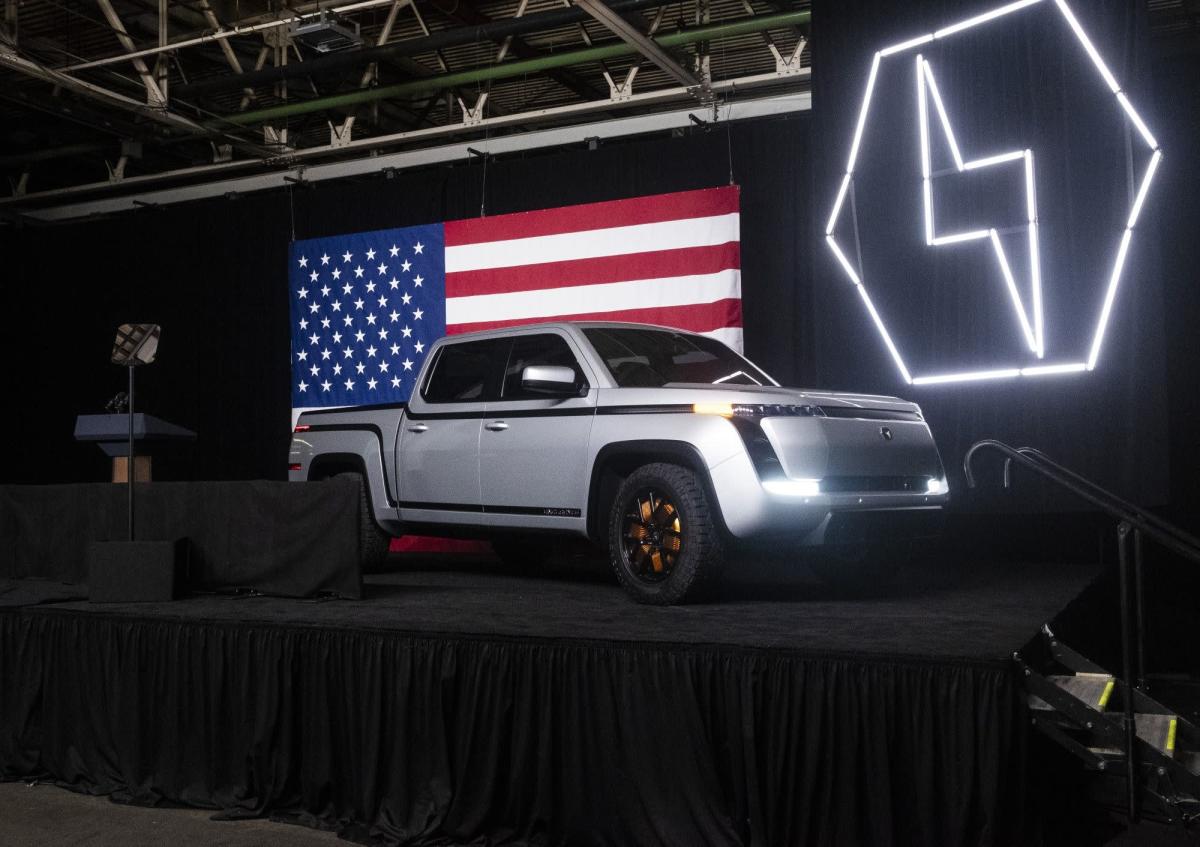
(Bloomberg) — Two years into the SPAC merger boom for electric-vehicle startups, companies are having a tough time finding cash to actually produce cars.
First Lordstown Motors Corp. said it would back off investing in the tools to build its electric trucks until capital markets loosen up. Two days later, EV Startup Canoo Inc. issued a Going Concern notice to alert investors warning that it could run out of cash.
Without more money, some face the real danger of not making it. Those that can raise money could end up paying a lot more for it or just not getting as much as they need.
“The story has changed,” said Bloomberg Intelligence analyst Joel Levington. “These companies are burning huge amounts of cash. Every day that the market goes down their liquidity gets more challenged.”
The problem, Levington said, is that convertible debt for many of the smaller EV companies with little or no revenue is costing more than 10%. They can’t issue much secured debt because they lack hard assets to put up as collateral. With stock prices depressed, issuing equity will be very dilutive to existing shareholders.
Canoo is the most recent company to report a potential liquidity crunch. The company said on May 10 that it has lined up $300 million in funding from existing shareholders and an equity purchase agreement with Yorkville Advisors, along with filing for a $300 million shelf offering. That pads a cash reserve that was just $104.9 million on March 31.
Burn Rate
The company will likely need a lot more. Bloomberg Intelligence forecasts that Canoo will burn through a total of $1.1 billion this year and in 2023, which means it will have to keep trying to raise funds.
Just two months ago, Chief Executive Officer Anthony Aquila said his company was “very focused” on avoiding dilution. Aquila said in March that Canoo was instead looking at asset-backed loans and working-capital credit lines — options he didn’t mention on its first-quarter earnings call this week.
Lordstown Motors, meanwhile, is delaying plans for its Endurance pickup truck. The company reined in a goal to raise $250 million this year, saying that it will seek $150 million instead.
“As you all well know, the capital markets have not been open for the sector, notwithstanding we continue to work with our advisers on available financing alternatives,” Adam Kroll, Lordstown Motors’ chief financial officer, said on the startup’s first-quarter earnings call on May 9. “However, with our options limited at the moment, we are taking a balanced and disciplined approach to allocating our current capital.”
Without that funding, the cost to make its Endurance pickup will be “significantly higher” than the sale price, President Edward Hightower told analysts on the call.
More Yorkville
Lordstown struck a deal in 2021 to sell up to $400 million worth of stock through an investment fund managed by Yorkville — the same firm now working with Canoo — but the decline in the startup’s stock price squeezed the amount of money it can make from that agreement.
Instead, Lordstown decided late last year to sell the Ohio factory it bought from General Motors Co. to Hon Hai Precision Technology Co., or Foxconn, for $230 million. That deal gave the company a lifeline. The Taiwanese maker of Apple Inc.’s iPhone also invested $55 million in a joint venture that will help Lordstown develop future products, but the company will need to raise more cash on its own.
Most of the EV startups that went public during the SPAC wave now find themselves back in a tenuous financial position, similar to where they were before their mergers.
Cash Infusion
Canoo had just shy of $150 million in cash in the quarter before its merger in December 2020. Faraday Future Intelligent Electric Inc. had $2 million at the end of 2020 before it revealed its own SPAC combination in January 2021.
Mergers changed their fortunes, at least for a little while. Canoo raised around $600 million, Faraday Future around $1 billion and Lordstown around $675 million. And this all happened quickly, since the mergers took just a few months versus the more protracted process of a traditional IPO.
At least one, though, was able to take advantage of the high-flying optimism while it lasted. Car designer Hernik Fisker’s eponymous startup, Fisker Inc., added $625 million to its $1 billion SPAC merger war chest last August by offering convertible notes when rates were lower.
Still, CFO Geeta Gupta-Fisker said this month that while the company had enough cash to get its Ocean SUV to market, the carmaker would still need to raise more money. The company is looking at bank debt or selling zero-emissions credits to conventional carmakers.
“We are talking to several banks to see what we can do with respect to working capital,” Gupta-Fisker said on the company’s earnings call.
Even if these companies can hang on through the current volatility in the market, they all still have a long way to go to find the $23.5 billion Tesla Inc. raised, not to mention a decade of gross profits that funded development.
Tesla CEO Elon Musk said at a conference this week that starting a car company “is mega pain.”
“It’s the furthest thing from easy money you could possibly imagine,” he said.
When asked if he had advice for other EV startups, Musk said: “Make sure you’ve got a lot of reserve capital and then gradually build up from the dumb things that you do at the beginning and be less dumb over time — otherwise what will happen is vast losses of money.”
©2022 Bloomberg L.P.